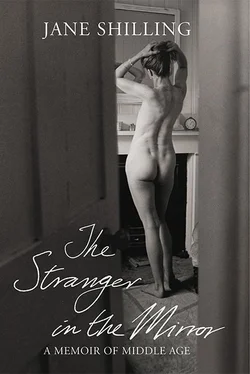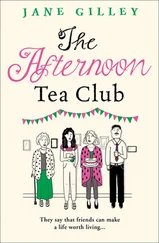Experienced at first hand they felt messy, overwhelming, contradictory – sometimes too disturbing to be endured. They attracted the disapproval of authority, in the persons of my parents and teachers (I envied Claudine her haphazard education, conveniently dead mother and vague, scholarly malacologist father, whose warmest attachment was to slugs, the scientific observation of which was his life’s work). To encounter in Colette’s heroine a character whose sensibility hovered uncertainly between boldness and diffidence, and whose author evidently approved of the farouche nature of her creation, was an amazing liberation: it seemed to give me permission to exist.
Almost twenty years later, in the crisis of an accidental pregnancy, it was again to fiction that I turned for comfort and information. Little better informed than I had been in my teens about my hormonal cycle, I abandoned the monthly packets of contraceptive pills – primrose-yellow seeds lodged in blister-packs of peridot-green metallic foil that once seemed the essence of sexy spontaneity, but lately had begun to seem not glamorous but toxic.
The Pill and I had got along wonderfully well all this time. I swallowed it without ill effects; felt, when taking it, exactly the same as when I wasn’t. Only, after a decade and a half, I suddenly began to feel a powerful nostalgia for my natural cycle. No doubt this intense wistfulness for an authentic experience of my own body had everything to do with the emotional artificiality that permeated the long and miserable attachment to which (despite my boyfriend’s vigorous efforts to escape) I had been clinging since university.
So I stopped taking the Pill. I had a sketchy idea of the means by which those minuscule beads frustrated the lodging in the womb of the monthly phantom baby (a tiny homunculus, I imagined it: a shrill-voiced Thumbelina slithering down the chute of the Fallopian tube and out, furiously protesting, through the sluice-gate of the cervix on a tide of menstrual blood). But I imagined that all the years of synthetic hormones must have rendered me at least temporarily sterile – and in any case we were getting on so badly that it was rare for us to share a bed.
One night we had one of our occasional rapprochements, during which the thought suddenly came to me that I was pregnant. An instant later I dismissed the idea as ridiculous. But my first instinct was true. In the time it took to formulate the thought, I had conceived.
To begin with, I didn’t say anything to my boyfriend. Once, long before, there had been a pregnancy scare. That time I had told him what I feared; we had worried together and when, at a New Year’s party, there came the welcome cramp in the belly, as the other guests cheered out the old year and in the new with champagne and exultation and I expanded in delicious relief from the terrible unknowing of what might or might not be growing inside my womb, he said quietly, ‘Pity.’
The moment of regret for something that might have shifted us from the aimless deliciousness of early love into something more permanent hung in the air. We didn’t discuss it. Nor, until long afterwards, did I identify that as the forked instant at which our feelings flowed into one channel rather than another. This time I didn’t tell my fears. I conjured a seed of hope that when told, he might remember his momentary regret at the missed conception and find something to celebrate in this second accident; but really I already knew what his reaction would be, and that whatever I did with the pregnancy, I would have to do on my own.
I really was on my own: almost exhilaratingly so. My grandparents were dead. I was on distant terms with the rest of my family. My girl friends hadn’t yet begun to have their babies. My closest male friend flew into a rage when I told him over a drink in a bar near St Paul’s Cathedral; said, ‘How dare you! Get rid of it! It ought to have been mine!’ then turned away, leaving me desolate in the warm spring evening among the traffic, the rushing City commuters and the busy pigeons. I knew absolutely no one who could advise me.
My boyfriend’s landlady, who had had her first child a year before and took a keen and not entirely malicious interest in the messy drama unfolding in instalments on her doorstep, lent me a couple of baby books. But when I took the first, by Sheila Kitzinger, to read in the train on the way to work, it fell open at a full-page picture of a splay-legged labouring woman.
For someone glad and confident about a new pregnancy, the image might have been inspiring: the hair-rimmed nether lips gaping to allow new life into the world a powerful reclaiming of the pornographic men’s magazine image of the sanitised, unproductive vulva spread wide for voyeuristic gratification. But for me, reluctantly pregnant with a baby celebrated by no one, it was too much. I clapped the book shut in dismay and never looked at it again.
It had not occurred to me (because I hadn’t thought about being pregnant at all, until suddenly I was) that there might be different styles of pregnancy, as there are different styles of writing, clothes or interior decoration. But reading Colette’s description of her late, ‘masculine’ pregnancy, I realised that there are, and that the absence of interested friends and relations meant that to some extent I could at least choose how to conduct mine.
The trouble was a shortage of role models. Apart from the gloomy precedent of Tess of the D’Urbervilles , I couldn’t think of any. But then I remembered The Millstone . I had gorged myself on Margaret Drabble’s fiction in my early twenties, continuing the pattern of reading entrenched during an English degree by consuming one book after another as though I were mastering her oeuvre with a view to writing an essay on it. I had an unlucky knack (for an examination candidate) of forgetting the plot of a novel as soon as I had finished the final sentence, but I remembered that The Millstone was about a young woman in something like my predicament, and took it down from the shelf.
Drabble’s novel was set in the mid-Sixties, when accidental pregnancy attracted more surprise and dismay than in the early Nineties (though not as much more as you might think – the reaction of all but two of the people I told I was pregnant was some variation on, ‘Oh dear. But surely you can get rid of it?’).
After a half-hearted attempt at a self-induced abortion, Drabble’s heroine, Rosamund, conducted her pregnancy with grave, scholarly composure. I wasn’t composed at all. Still, if I didn’t manage to mimic Rosamund’s poise, or her patient endurance of the indignities visited by medical staff on expectant mothers (it was curious to note how little these had changed in the generation between 1965, when The Millstone was published, and 1991, when I was expecting my baby), I kept my head just enough to note the ways in which a woman wrong-footed by biology and her emotions could assert herself. I bought no layette, attended no pregnancy classes, prepared no nursery (there wasn’t room for one, anyway, in my tiny basement flat), experienced none of the softening of the brain and physical debility that is supposed to affect pregnant women. On the contrary, between fits of misery, I felt very well and very clever. In other circumstances, it would have been an ideal pregnancy.
After a brief, tearing labour which, since it was the mirror image of the one in The Millstone , was pretty much as I had expected – dazzlingly painful and attended with brutal scepticism by the receiving midwives and fuddled dismay by the very young duty obstetrician – my son was born.
‘It is neither wise nor good to start a child with too much thought,’ wrote Colette, who would have been interested in the complicated and contradictory manoeuvres executed by women of my generation at first to avoid conceiving a baby, and later to try and get one to stick. ‘I was struck by the recollection,’ she added, ‘that intelligent cats are usually bad mothers, sinning by inadvertence or by excess of zeal…’ I was with the unintelligent cats. I found it deliciously easy to be a good mother to an infant. It was an enormous relief to give up the habits of egotism ingrained for three decades in favour of having someone to take care of.
Читать дальше












